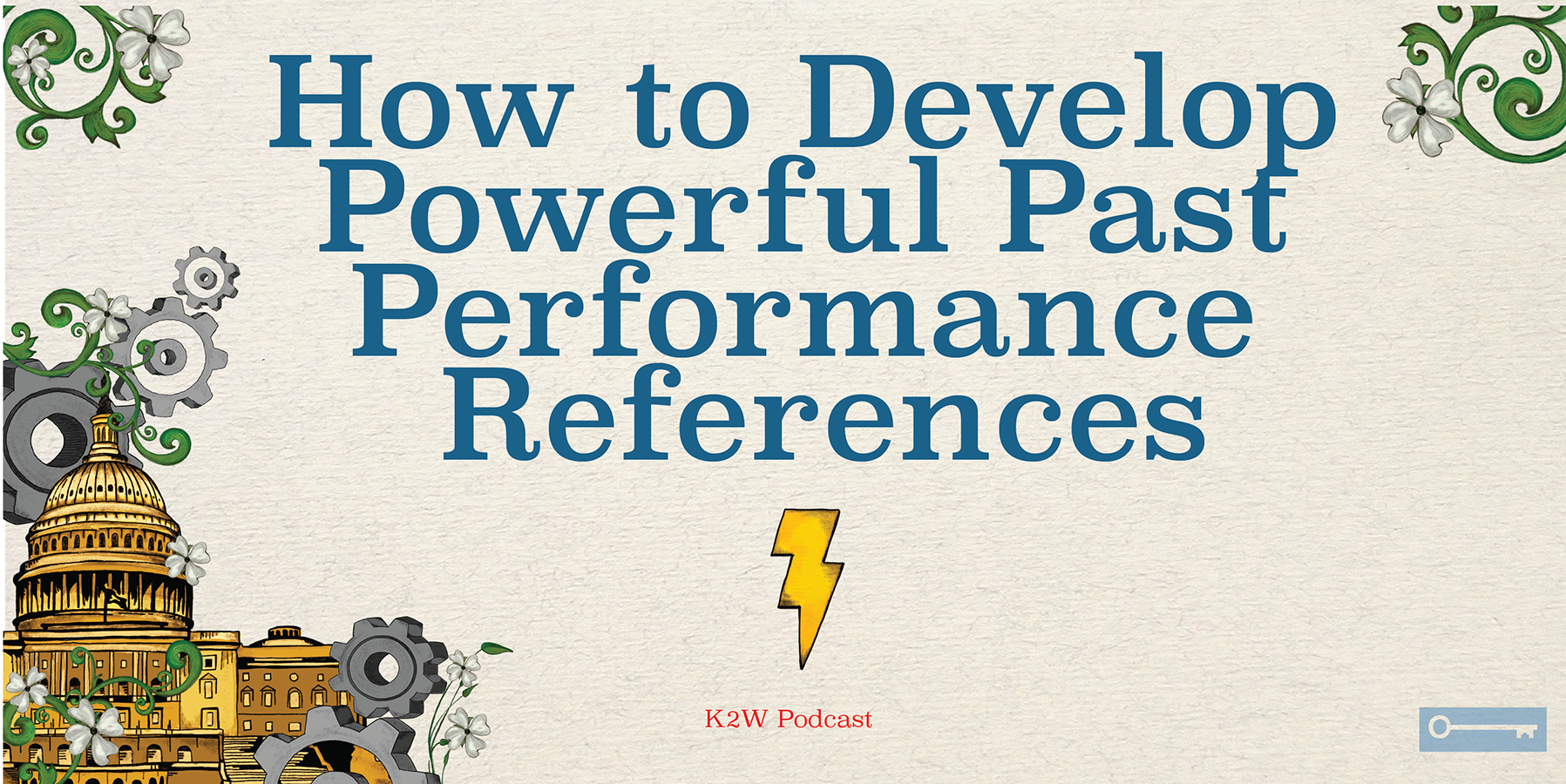In an industry that attracts all kinds, the Association of Proposal Management (APMP) certification is a valuable investment for companies and consultants alike.
Learn what you need to do to take and pass the APMP certification test, which has become a widely recognized standard of proposal professionals in the industry.
Guest: Ben Bartunek, CF APMP, Proposal Development Consultant
Click the orange play button to listen to the episode below. You can also listen on Apple I-Tunes or Soundcloud.
Prefer to read? Here's the transcript.
Ray Thibodeaux: Welcome to Keys to Winning, a podcast where we talk about government contracting topics such as proposal development, business development, win strategies and more. Keys to Winning, produced by AOC Key Solutions, a leading bid and proposal development firm, gives you a chance to learn from leaders and experts in their fields. I'm Raymond Thibodeaux today's host of Keys to Winning.
Ray Thibodeaux: Key Solutions Proposal Specialist Ben Bartunek has led study groups to help proposal professionals take their APMP certification test. That's the Association of Proposal Management Professionals. He talks about what you need to do to take and pass the test, which has become a widely recognized standard of proposal professionals in the industry. Ben, welcome to the podcast.
Ben Bartunek: Hey Ray, thank you for having me on.
Ray Thibodeaux: The APMP certifications, the foundation and practitioner levels, are an indicator of folly for us consultant types. In our line of work, the level of experience, knowledge, and talent is all over the board. So that companies hiring consultants to help them develop proposals play a kind of consultant roulette. Do the certifications eliminate some of that guess work?
Ben Bartunek: I would say they do because for the simple reason that this, when they go to pick someone that's been posted as APMP certified, then they know first hand that the person has taken the time to do the work and understand the industry. And the most common pitfalls become common knowledge to that person, so they know what to watch out for. That will eliminate a lot of misunderstandings. That will also unify the communication nomenclature the people use, so when someone says Pink Team, they know what Pink Team means to everybody. It also demonstrates that person have been vetted by an industry recognized body. I mean literally if you look at law or engineering, a lot of the terminology is unique to those industries because it's a shared language within that industry.
Ray Thibodeaux: It always kind of surprised me that in our line of work not a big percentage of people have these certifications, which for the proposal development related industry is kind of one of the few credentials. So obviously it's no bar to entry, but why is it important to have it?
Ben Bartunek: Well it's important for two reasons. One it sets you apart and shows that, like I mentioned earlier, it shows that you can do the work, you do understand the industry, and you follow a regimented set of guidelines. Why a lot of people aren't using it in the industry, really now it could be just because it hasn't had enough exposure nationally, and companies like AOC [Key Solutions] will be exposing many of our clients to the APMP certification.
Ray Thibodeaux: It's funny that you say that because the truth of it is I rarely see companies require their consultants to have A&P certifications of any kind, so why is that?
Ben Bartunek: Well way back when I first started consulting, and back when I was at IBM, I remember that a lot of companies, like I think McDonald Douglas, and McDonald Bradley, and IBM were three of the bigger accounts that I've worked with, and even CDW they all have their own internal way of doing things, and their own internal training system, and nomenclature, and gate to use. And because of that, they just didn't feel the need to send people to APMP.
Ben Bartunek: So, it could be that the larger companies don't see the value, and until they adopt this wholesale, it's not gonna be widely recognized, or widely dispersed across the industry. Which is another good thing for us, 'cause that's a further differentiator for us as consultants within AOC [Key Solutions], and within other companies where people have these certifications. That they can now make themselves stand apart and go, “Hey look, we're certified.” You know? We do this better than anybody else because we took the time to review the materials, sturdy the test, and put in the hours necessary to qualify for this certification.
Ray Thibodeaux: How would you describe the test? What is it focused on?
Ben Bartunek:The primary focus of the test is really understanding the terminology, and understanding really how things work. Maybe 60% of the test is just terminology based, meaning knowing what a Pink Team means, knowing what a gate reunion is. Knowing this is a black hat versus a slot analysis. And then the rest of it is really based around executing those things within industry, and using them to their best applications.
Ben Bartunek: Now that being said, I do suggest that if someone is going to study for the test, the very first thing you should do is read through the study guide at least once, just a quick scan of it, and then they take the time to actually bold every single term you should know. I would recommend looking up every single one of those terms. Honestly, no one is going to know the exact definition for every single word, and that's one of the reasons to write it down, and get it in such a way that you remember it. Yeah, walking through the materials, and taking notes, and highlighting the most important parts. Or at the very least, highlighting all the parts you just don't understand. On my test, there was a question that I got that no one else had gotten, and it was about resolving arguments. Which was an unusual thing, but it's in there.
Ray Thibodeaux: It's almost ironic that in this line of work it's so process driven, so process focused. You know I'm kind of surprised that taking the APMP certification test, you're not really grilled on the process as much as I thought you would be.
Ben Bartunek: No, and I would agree. And I think that's because, that's probably intentional, because a lot of companies that process isn't exactly something that can be adopted easily, and they try to keep it very fluid. So I would imagine the proposal process itself, whether it's according to Shipley or APMP or anybody else, it's going to be a little fluid and amorphous and change just slightly for everybody. A Pink Team means you just need to have bullet points and a main idea for every single section. Whereas, and then I have noticed at Desin, the APMP Desk, they focus on definition rote, definition and rote memorization are key to passing that test.
Ray Thibodeaux: Well with that, thank you Ben for being on the podcast.
Ben Bartunek: No problem, it's my pleasure Ray.
Ray Thibodeaux: And we'll close there. I'm Raymond Thibodeaux and this has been Keys to Winning from AOC Key Solutions Incorporated, or KSI, a consulting firm that has helped companies across the country win billions of dollars in federal contracts. Learn more at www.aockeysoloutions.com or follow us on Linkedin. Be sure to subscribe for more podcasts in this series, and thank you for listening.







